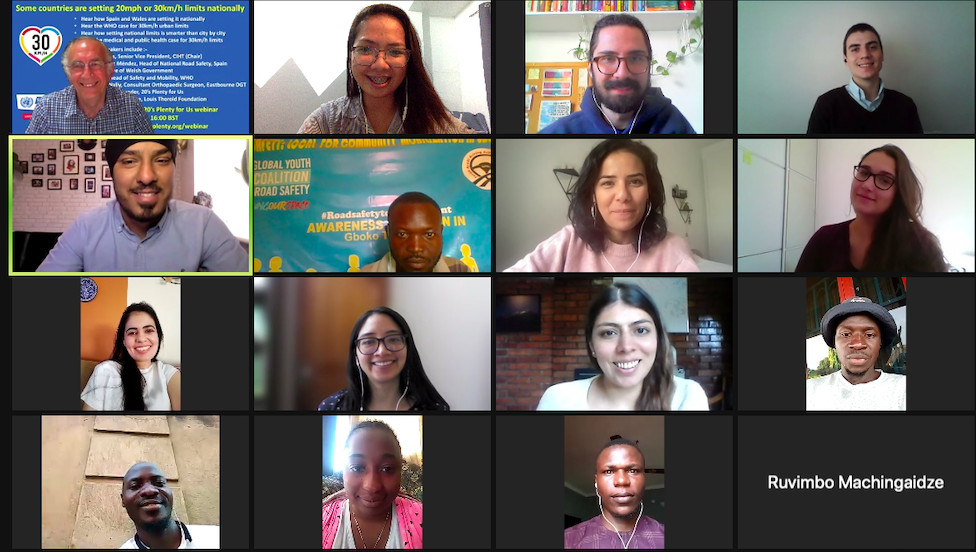Coalition holds capacity development session on advocating for 30 km/h streets
Last Thursday, May 13, the Global Youth Coalition for Road Safety launched its fifth capacity development series on advocating for 30 km/h streets in connection with the 6th UN Global Road Safety Week.
The goal of the session was to provide Coalition members with information about the importance of 30 km/h speed limits where people and traffic can safely mix and to strengthen their knowledge on the risks of speeding and the benefits of 30 km/h.
The session gave members a chance to interact and actively participate in the session which resulted to a fruitful exchange between the superstar lecturers and the Coalition members
The session discussed the different risk factors of speeding and how this contributes to severe injuries and even deaths. Speed factors like kinetic energy, reaction time, and higher speeds were covered during the session.
The session featured two superstar lecturers, Nhan Tran - Coordinator of the Unintentional Injury Prevention Team at the Department for Management of Noncommunicable Diseases, Disability, Violence, and Injury Prevention from the World Health Organization and Rod King - Founder and Campaign Director of 20s Plenty.
During the first part of the lecture, Nhan gave a global overview about why the 6th UN Global Road Safety Week focused on lowering speed limits to 30 km/h. He covered the goals, objectives, and expectations behind the upcoming UN Global Road Safety Week and why specifically the global community is advocating for 30 km/h.
“We see it as an essential starting point because one of the key elements in the Decade of Action will be speed and we saw this as an opportunity for the launching platform of the decade of action”
Nhan also talked about the importance of urban design and the role and responsibilities of young people in the process and implementation of redesigning the urban environment.
“I’d like to suggest that young people become active participants in redesigning and conceptualizing mobility. You should not take as face value the mobility systems that exist today as what they have to be.” – Nhan Tran
For his lecture, Rod explained the movement behind 20s plenty. He talked about how campaigners in Whales began and continued to advocate for lower-speed streets that resulted in the creation of policies that reduced speed limits in the area.
Rod also gave advice on how young leaders can start conversations to advocate for speed and take action in their communities.
“Always look for the allies you have when you undertake a particular intervention”






